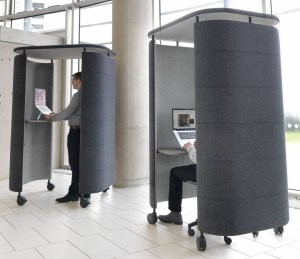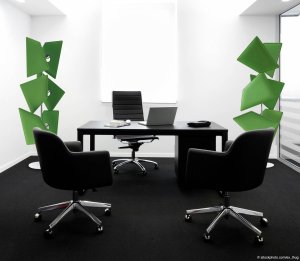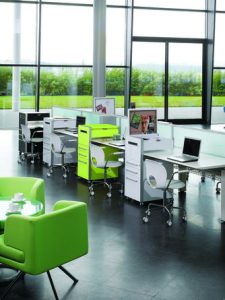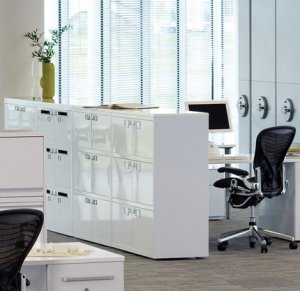How is Employee Wellbeing Affected by Lack of Privacy and Acoustics
In the last few years ergonomics has been the number one focus in workplace and furniture design. We've seen chairs that promote good posture and sit-stand desks all becoming prevelant. However, ergonomics is just the starting point in the much bigger picture of employee wellbeing.
There are many factors that come in to play when considering how to improve the physical, mental and emotional health of employees. However, something that has perhaps been overlooked in the quest for a more flexible workplace is privacy and proper acoustics. A recent increase in the trend of open plan offices has seen more and more companies refurbishing their sites to reflect a more accessible and flexible environment. With this being very much the main focus, individual preferences have often been overlooked. Indeed, many offices have been designed on presumptions and trends rather than for the company's unique staff.




What are the statistics?
The University of Sydney found that noise is the number one complaint of employees that work in open plan offices, with up to 60% citing it as a major issue. Evans et al & Sundstrom also point out that noise is probably the most prevalent source of annoyance in offices and can lead to increased stress. If you consider that most people spend more time working (36%) than they do anything else - even sleeping (32%) - it makes sense to create an environment where as many individual needs as possible are catered for. The open plan office manages to tackle many historic dissatisfactions in the workplace such as lack of flexibility, an inability to freely express ideas and interact with managers and a lack of collaboration with other colleagues. However, most office workers spend 40-60% of their time on concentrated tasks, yet 42% said they had no access to private or quiet areas. This can create serious problems with productivity. It takes an average of 15 minutes to regain concentration after being distracted by unwanted noise. A worrying example of this finding is that just 5 distractions in an 8 hour working day equates to a 15% reduction in productivity. In other words, in a company of 200 employees, 30 of these people would be being paid to do nothing. Other statistics which highlight the issue of noise in the office include a 32.7% decline in operating income for companies with low levels of employee engagement. However, amongst companies with higher levels of employee engagement a 19% increase in operating income was observed.How can I remedy these problems in my office?
We are now beginning to see just how important noise levels in the office are, even if they have been overlooked in the recent past. There are however, solutions to the problem, even if you have got an open plan office. Before looking at the following options, we recommend analysing the way that your staff work. What is important in the way the company works? Try to gather some opinions from the staff themselves. This information may take some time to collect but any decision you make from the data is informed and can only have a positive impact on your bottom line.Product Solutions
Installing acoustic and sound absorbing products into your work place is a quick and easy solution to end distractions, create some privacy and improve concentration. Perhaps the most obvious way to introduce some privacy is with floor standing screens. Simple to set up, these screens enable you to create quick meeting or private areas. Some floor standing screens are mobile and some come with options such as a whiteboard top or toolbars. The level of acoustics varies between types of screen, so this solution is a better choice if you are looking to simply add in some extra privacy to your work space. Desk mounted screens offer much the same as their floor standing counterparts but tend to be shorter and attached directly to the desk. They offer a level of organisation and privacy and can also provide some sound absorption depending on the screen's material. Office pods can be seen as a cure all for privacy, acoustics and flexible working. Offering excellent acoustics, varying degrees of privacy and excellent levels of flexibility, an office pod is the simplest and most versatile option. Dot them around the office to create quiet and private working havens or group them all in the same area to create a place designated for concentrated work only.

How can storage help?
You may not think it but storage can actually help towards solving privacy and noise problems. Bisley Towers™ offer privacy thanks to their tall profile which can act as a simple divide between desks. This also means that they offer some degree of acoustic value. Bisley Eyespace™ is a great storage and filing system which manages to look stylish, offer superb functionality and create divides. A great way to add practicality and privacy into the office. Although Bisley Bite™ doesn't offer acoustics or privacy in itself, it can be used at each desk to complement the use of office pods. Bisley Bite™ is a mobile pedestal drawer unit which slots over the top of any desk. So, when your employees need to move to a quieter area to concentrate, they have all their files with them to facilitate a smooth and practical transition from their desk.

